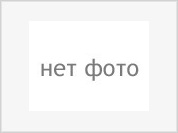The leader of the free world: Obama or Putin?

By Philip O'Brien
Leading the world against Obama's war drive in Syria at G20 recently, and offering political asylum to whistleblower Edward Snowden, you'd be forgiven for thinking that Russian President Vladimir Putin was the badass of the free world as we witnessed the spaghetti western stare down between superpowers.
Beginning with Edward Snowden, charged with leaking details of the NSA's domestic electronic surveillance programme, escaping to Russia's Sheremetyevo airport in June: He slammed the Obama administration via Wikileaks for showing zero 'respect for international law.'
Team Obama, at this juncture panicking due to the timing (they had a pre-planned war), were flummoxed as Putin's Russia appeared to be the politically free centre of gravity, reversing their scripted narrative.
It was, according to Republican Senator John McCain, a 'slap in the face' to US credibility. A confusion for both westerners and Russians alike as he strutted the world stage berating America's roguish behaviour, the painful affair expertly drawn out, each day twisting the knife into the Anglosphere.
But the United States had it coming. For many years they had taunted their competitor in the Heartland with their own political asylum seekers, with accusations of authoritarian rule and oppression of dissidents, convenient then that there was no extradition treaty between the two entities.
Certainly Putin's frosty response was driven in part by President Barack Obama's expression of 'disappointment' at the arrest of Pussy Riot in 2011, after the protest punk group desecrated the Cathedral of Christ the Saviour.
At the time the White House expressed its 'serious concerns for the way these young people have been treated by the Russian Judicial system,' referring to their two year sentence.
US prisoner of conscience Bradley Manning however, who's torture, solitary confinement and 35 year prison sentence this year for exposing US war crimes is another matter -- as is Guantanamo Bay's indefinitely held prisoners on no charge, many innocent, force fed and water-boarded -- but it does serve the purpose of exposing the faux-moralising and hypocrisy prevalent at the height of diplomatic mudslinging.
A hypocrisy exemplified succinctly during the controversy surrounding Russia's recent passing of the 'anti-gay propaganda law,' which forbid the promotion of homosexuality to children. Motivated purely out of a need to undermine Russia's emerging stratospheric global prestige, conglomerate western media outlets hyped the law's critics.
Semi-genius and comic Stephen Fry, who compared the affair to the persecution of Jews in Nazi Germany, called for a boycott of the forthcoming Winter Olympics in Sochi. Ignoring west friendly Qatar's far worse treatment of homosexuals, who are preparing to host the World Cup.
But all this tactful sabre rattling shrinks into significance compared to a far more serious geo-political spat: Civil war in Syria. Heightening the cold war mentality which has simmered for a decade, both the United States and Russia have very distinct interests for taking an increasingly polarized position.
Russia supports Syria's president Assad for a few reasons and expects to assert its own sphere of influence in the region. First, there's the pipeline dimension. Assad is blocking the flow of liquid natural gas from the Persian gulf into Europe, protecting Russian national interests in Gazprom.
Qatar, currently the largest exporter, and Saudi Arabia, both Sunni, hoped to build gas pipes through Syria to reach these lucrative markets, which Assad refused in favour of Shia Iran contracts. The former, Qatar, spent 3 billion supporting the rebels and other 'Arab nations', revealed Senator John Kerry, offered to fund America's strike.
According to the Daily Telegraph, the Saudis also 'offered Russia a sweeping oil deal to control the global oil market and safeguard Russia's gas contracts, if the Kremlin backs away from the Assad regime in Syria.'
With the discovery of gas in Israel, they too are competing for these markets, and also favours destabilisation of Syria since its closest ally, Iran, is Israel's key enemy. It is essentially their proxy war with Iran.
The German magazine Focus reported that the evidence proving Assad's use of chemical weapons against civilian non-combatants, which would offer the needed moral pretext to strike Syria, was provided by Israeli intelligence.
British MP George Galloway goes further and blames Israel for the attack, accusing them of providing the materials. And in Britain, Business Secretary Vince Gable is questioned regarding chemical export licenses granted to Syria.
Israel's own use of chemical weapons, such as white phosphorous in Gaza, is of course irrelevant. As is the United States use of it in Fallujah, Iraq and Agent Orange in Vietnam -- Assad's supposed use of chemical weapons, as stated, is pretext.
A pretext involving a grand strategy re-shaping the middle east. According to General Wesley Clark, it dated to at least the early 1990s after the fall of the Soviet Union. The Neo-Conservatives at the Pentagon wanted to clean up the region 'before a new superpower came onto the scene to challenge them.'
It was clearly spelled out in 1996. With the appearance of the Neo-Conservative/Israeli Clean Break manifesto, lead by Richard Perle and prepared for Prime Minister Benjamin Netanyahu, its call was 'to contain, destabilize and roll-back' perceived regional threats.
Goals shared with the Neo-Con's Project for the New American Century (PNAC) published in 1997, which advocated 'aggressive US foreign policies' in the middle east and 'global leadership.'
To launch the crusade it said it may be necessary to have a 'new Pearl Harbour,' which came with the 9/11 terrorist attacks in 2001, green lighting their 2003 'policy coup' Iraq invasion.
Proving the axiom: 'Truth is the first causality of war', the Neo-Con Office for Special Plans in the Department of Defence manufactured the claim Iraq had WMDs to justify this campaign.
They're objectives are explicitly against strong, autonomous nationalist governments, independent of Washington influence, in this resource rich and geo-strategically important region.
It is not a surprise then to learn presently that the same Neo-Cons posted an absurd open letter calling for Obama to act to ensure that 'Assad's chemical weapons no longer threaten America.'
Chiming in, AIPAC, 'the 800-pound gorilla in the room,' says: 'Syria proves urgency to stop Iran.' They are so desperate to start a new war, it's obvious something's in play. And the people, increasingly, know it.
To Israel and their Neo-con supporters, Iran and its Shia allies are seen as far more dangerous than any other anti-Israel Arab denomination. They hope either for a severely weakened Assad and Hezbollah, or a Sunni regime on Iran's border.
The claimed Assad chemical attack, the US's jump to strike, and Russia's successful blockade of such a course of action, vindicates the former National Security advisor to President Jimmy Carter, Zbigniew Brizinsky.
In his book The Grand Chessboard, he forewarned following the collapse of the Soviet Union: 'It is imperative that no Eurasian challenger emerges capable of dominating Eurasia and thus also challenging America.' Putin's Russia, friendly with China, (which also strongly opposes a western attack) is that emerging superblock. America is the lost and fearful king.
When Putin described the chemical weapons claims as 'complete nonsense.' That al-Nusra, an affiliate of al-Qaeda, was more likely to blame, he was showing his contempt.
He continued: 'In such conditions, giving a trump card to those who are calling for foreign military intervention is foolish nonsense.' When John Kerry denied al-Qaeda involvement, he called him flat out 'a liar.'
Similarly, at the recent G20 summit, Putin lead the international community against the Nobel Peace prize recipient's war stance. At the summit in St Petersburg (officially to talk about the world economy and multinational tax evasion), he distanced himself from the detestable figurehead.
With talks of a red line being crossed, Putin compiled his own dossier accusing the rebels of carrying out the attacks, pulling a Mario Savio 'bodies upon the gears.' Full spectrum dominance appeared in the Kremlin's court, and may soon play out on the international stage.
Visibly, Obama and Putin are competing for moral supremacy. A public consumption storyline, neither side wants to be seen to lose face. Saving many lives, for now Obama has blinked and speaks of backing down if Assad hands over his chemical stockpile.
And as the ex-KGB officer emerges as the leader of the free world, we may see with the smoking barrel that historical ironies don't come cheap. But if a costly and unjustified attack on behalf of al-Qaeda is repelled, and WW3 averted for the foreseeable future, will Putin get his Nobel Peace prize?
Philip O'Brien
Subscribe to Pravda.Ru Telegram channel, Facebook, RSS!




